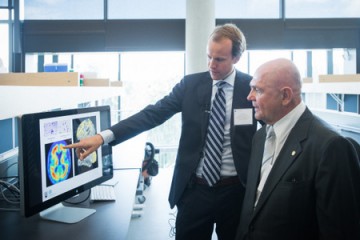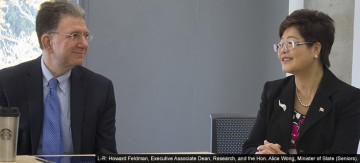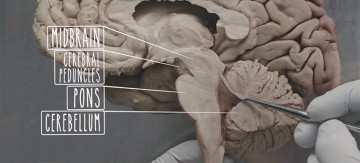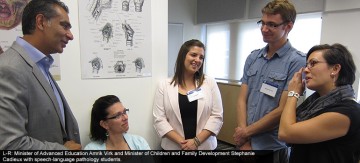Homepage
UBC subspecialty residents prepare for wave of aging baby boomers
By jwong | October 8, 2014
UBC subspecialty residency training programs are equipping the next generation of doctors to help the wave of aging baby boomers.
Unravelling the link between genetics and mental illness
By alisonl | October 7, 2014
There are still no genetic tests to diagnose or confirm a psychiatric condition, but Jehannine Austin hopes genetic research can lead to more targeted and effective treatments.
Two faculty members inducted into Canadian Medical Hall of Fame
By jwong | October 7, 2014
Julio Montaner was honoured for his work on HIV, and Judith Hall for her work on congenital disorders in children.
Canadian diamond pioneer donates $9.1 million for Alzheimer’s research
By bkladko | October 3, 2014
Chuck Fipke’s gifts include an endowed professorship and state-of-the-art brain imaging technology.
Minister of State for Seniors gets close-up view of Centre for Brain Health
By bkladko | October 3, 2014
Alice Wong is the second federal cabinet member in six weeks to visit the centre.
A rise in injury rates for older male motorcyclists
By jwong | October 3, 2014
Motorcycle injury data from 2001 to 2010 indicated that motorcycle-related injuries were older men of age 45-74.
Walkable neighbourhoods produce better health outcomes
By jwong | September 29, 2014
Lawrence Frank, Professor in the School of Population and Public Health, found that people who prefer to walk and live in walkable neighbourhoods are healthier.
Physician, teach thyself
By jwong | September 26, 2014
New technologies are helping future doctors take their education into their own hands.
Big jump coming for UBC’s speech-language pathology program
By bkladko | September 16, 2014
First-year slots in the master’s degree program will grow by 56 per cent, to help address the shortage of therapists.
New research finds quicker method to create insulin-producing cells
By jwong | September 12, 2014
Professor Timothy Kieffer leads research of a protocol that turns stem cells into insulin-producing cells in just six weeks








